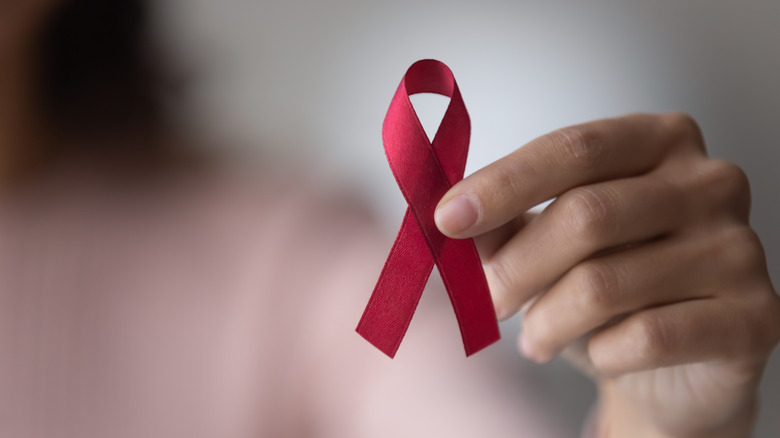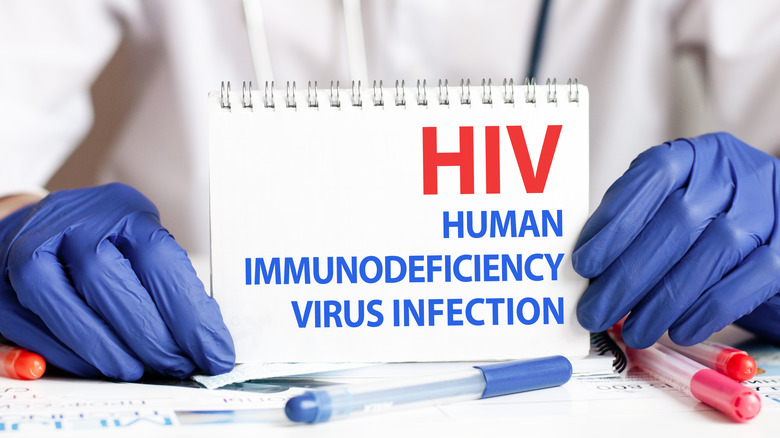HIV VB: Everything We Know So Far About The New HIV Variant
A new HIV variant was recently discovered to be circulating in the Netherlands (via Healthline). If we have learned anything from the COVID-19 pandemic, it is that variants can pose new and more difficult challenges to people with the disease and those trying to treat it. New research published in the journal Science has found that the new variant, referred to as HIV VB, progresses almost twice as fast as other strains. This means that people with HIV VB typically develop AIDS (acquired immunodeficiency syndrome) within two to three years after being diagnosed, as opposed to the typical progression of six to seven years.
HIV VB is also believed to be more contagious and more aggressive than other variants. "The VB variant's ability to facilitate transmission, damage the immune system, and interrupt treatment is a reminder how smart the virus is evolving over time," Anthony J. Santella, DrPH, MCHES, professor of Health Administration and Policy at the University of New Haven, told Healthline. Experts have noted that while HIV VB has not been studied extensively, there is currently no evidence to suggest that current treatment options for HIV will not work against the new variant.
What is HIV?
HIV, or human immunodeficiency virus, is a virus that attacks cells meant to help the body fight against infections (via CDC). Someone who has HIV is more vulnerable to infections and diseases than the average person. HIV can be spread through blood, sexual contact, or mother to child during childbirth, pregnancy, or while breastfeeding (via Mayo Clinic). When left untreated, HIV can lead to AIDS (acquired immunodeficiency syndrome), which is the most severe stage of HIV. People with AIDS have extremely damaged immune systems and often develop many different illnesses. Without treatment, individuals with AIDS live for about three years.
There is currently no cure for HIV. However, proper medical care can help someone with HIV manage their condition and live a long life. HIV is treated with antiretroviral therapy (ART), which reduces the amount of HIV in the blood and reduces the likelihood of transmission to others (via CDC). The only way to know that you have HIV is to get tested. People typically experience flu-like symptoms a few weeks after infection.


